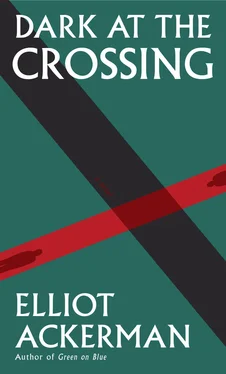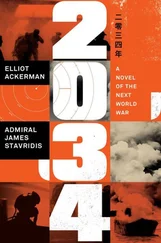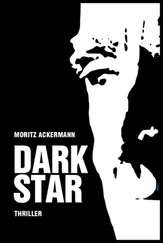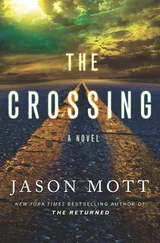It didn’t.
On the backs of his lidded eyes, he could see Samia. She was taller than Haris, as though she’d stolen his height from him, and fair-skinned for an Arab, with hair that shone nearly blond. He remembered how at night he’d rested on the sofa bed in their apartment, lying awake for hours as he watched over her shut bedroom door. How each morning he would ready himself and then sit fully dressed on the edge of his bed, waiting to see her light switch on in the room before he would rush off to work. She had always been beautiful, not to be kept by a brother. So when the Emirati boy asked her to marry him the winter before graduation, it came as no surprise. Haris could forgive that the boy hadn’t consulted him, that by birthright the Emirati could provide more for Samia than Haris could in a lifetime, he could even forgive the sight of the boy’s car in the campus parking lot, the lot that Haris cleaned daily, but he could not forgive that the boy proposed to return to the Emirates, to Dubai, with his sister.
Samia told Haris on campus, outside of her classroom, so there would be no scene. “This is a better life,” she said. “It’s why you brought me here.”
“I did not bring you here so that he could take you there,” Haris answered.
She gently wrapped her hand around his wrist.
Students jostled against Haris in their rush to class.
“What will you do?” she asked.
He twisted his arm away. Freed from her hand, he realized for the first time that he now had to do something.
Across the border Haris heard a low rumble and opened his eyes. A dim orange glow slowly brushed along the horizon. It smoldered like buried embers. There was another rumble. With it came a single flash, illuminating distant smoke. Like weather forming from the land, the smoke bloomed, tumbling through the orange glow. Distant fires burned, slowly dying. Darkness gradually returned.
Hanging in low orbit, the planet reappeared.
By now Haris knew it wasn’t a planet.
As the regime plane flew south, he watched its taillight, feeling more certain about its place in the sky than about anything else above him.
—
Under a blanketof low clouds, the day held its warmth. By late morning, Haris had already walked another two hours down the D850. After watching last night’s bombing, he had awoken feeling refreshed. The war was right there, a purpose for him. On the horizon he could see Kilis and the abandoned tenements where many Syrian families squatted. He had sent Saladin1984 another email that morning and, despite his better instincts, Haris felt optimistic he would hear something back.
It was the optimism of having nothing left.
Until he had lost his passport and money, Haris hadn’t realized the burden they had been to him. Actions he felt no pride in had earned his American citizenship. After leaving Iraq, menial work he hated had earned his salary in Michigan. Now he had been given a chance to reinvent himself, to make amends — if he could get across the border.
Then he glanced up the road and his shoulders went slack.
At a roundabout planted with yellow tulips, a traffic light hung from two side posts. It swung from a wire in the breeze. Beneath it were the refugee boys from a couple of days ago — the ones Haris had driven past in his taxi.
A few saw him and pointed as he lumbered their way. The boy with the jet-black hair stepped into the road, taking a look. The other boys lounged beneath several plastic tarps lashed between sapling branches along the median. The low clouds had thickened, turning gray. With rain coming, the boys jockeyed for position under their shelter. Haris saw the little boy from before, the one with the clear gray eyes and glasses missing a lens. There seemed no room for him beneath the tarps. He sat just outside them.
The boy with black hair ambled up the road. “Do you remember me?”
Haris nodded.
The boy asked Haris’s name, offering his own: Jamil.
Haris felt certain about what would come next. He waited for Jamil to laugh at him, to take joy in all he had lost. He imagined the taunts — Where is your taxi? I don’t suppose you’d like to buy some new clothes from us?
Jamil looked up, holding a palm toward the sky. “It’s going to rain,” he said. “We have some shelter, nothing much to eat, though. You can wait with us.” He motioned for Haris to follow.
Haris didn’t want to be cared for by boys.
The sky closed in and the rain came. The boys huddled beneath the tarps slung from the saplings. Jamil stood on the wet, dark road, waiting for Haris.
Haris wouldn’t make Jamil wait in the rain, so he followed.
They crouched low, ducking their heads beneath the shelter. Inside it was dim. Row on row, boys lay against each other. A few sat up, blankets or jackets wrapped around their shoulders. Their faces wore dirt like a second skin. Cardboard slats lined the ground, the wet earth creeping through them, smelling of rot. Heavy rain pelted the plastic tarps. Its sound mixed with the boys’ chatter, blending their voices into that of a single incoherent child.
Jamil passed among the boys like a school-yard bully, everyone making room in case he wanted it. Now and then he smiled or rested a hand on one of the smaller or weaker boys, his authority a blend of benevolence and menace.
The boy with the gray eyes poked his head into the shelter, smiling at Haris, who smiled back. Jamil noticed, telling Haris the boy’s name: Hamza.
Hearing his name, Hamza pressed his glasses up the bridge of his nose. Jamil shooed a few other boys into the storm, making space for Hamza. The three of them came to the center of the shelter. They sat atop a large piece of fresh cardboard with some broken bits of furniture, cedar bark, and newspaper piled next to it. Using a wooden chair leg, Hamza stabbed a burn pit into the wet earth. Above the pit a seam in the shelter would allow smoke to escape. The air was cold and dank, but a fire would help.
Hamza piled the junk into a pyramid. Dirt from digging coated his small hands up to the wrists. Rain fell into the pit, and Hamza continued to work swiftly, as if he’d done this many times before.
“You tried to cross?” Jamil asked Haris.
He nodded.
“If I had money for a fixer to smuggle me, I’d cross too,” added Jamil. He took a comb from his pocket, running it through his hair. He again glanced at Haris, who said nothing. “You think I’m too young?”
Hamza looked up at Jamil through his one thick lens. Then he buried his head toward the ground, furiously building the fire, as if its warmth might convince everyone to stay.
“I’m sure younger men than you are fighting,” said Haris.
Jamil seemed pleased by this. Younger men. He took care of all these boys. That made him a man.
Hamza finished stacking the wood. He thumbed a lighter, striking sparks but no flame. The rain fell on the unlit fire, threatening to ruin it. Frantically he shook the lighter. Nothing.
“Will you try to cross again?” Jamil asked.
Hamza managed to raise a flame among a few dry leaves. Rain fell on them. They went out. Some embers still smoldered. Hamza brought his face level with the ground, blowing at the embers, billowing clouds of smoke.
“I think so,” said Haris.
“You’ll need a fixer, and that will be expensive.”
The fire wouldn’t take. Hamza sat up, his eyes tearing from the smoke. He removed his glasses and wiped his face, which was wet and desperate.
Haris crawled over to Hamza. “Here,” he said, pulling out the lighter he’d bought from them. Slowly the flame took and the noise of popping wood mixed with those of rain and the boys speaking beneath their shelter. Warmth spread. The boys quieted. There was only the sound of the rain and the fire.
Читать дальше












